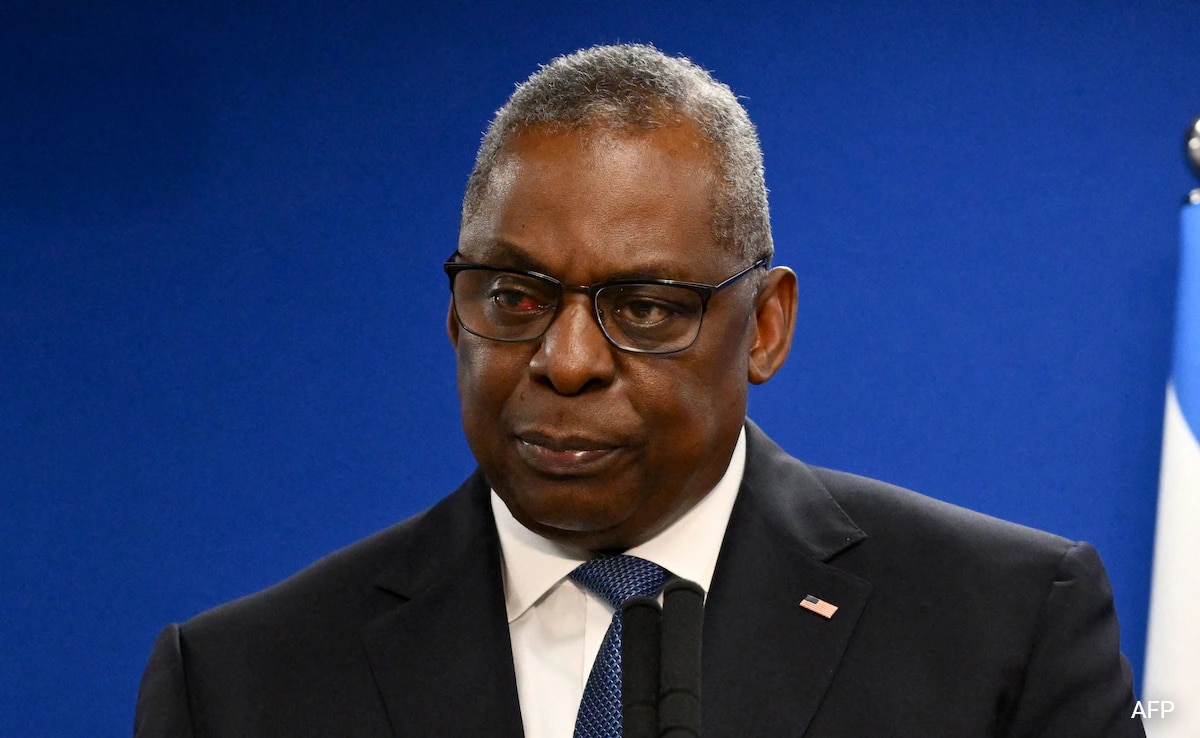The United States vowed Monday it would continue to arm Israel in its campaign against Hamas, even as it called for more humanitarian aid to Palestinians in the devastated Gaza Strip.
Fighting raged on in the third month of the bloodiest ever Gaza war, with the Hamas-run health ministry reporting another 110 people killed in strikes on the Jabalia camp near Gaza City.
The UN Security Council in New York was set to vote on another call for a ceasefire in the besieged territory, after previous bids were vetoed by Israel’s key ally the US.
But the vote was postponed until Tuesday as negotiations continued over the text of the document, diplomatic sources at the United Nations told AFP.
Visiting Israel, US Defense Secretary Lloyd Austin said: “We must get more humanitarian assistance in to the nearly two million displaced people in Gaza and we must distribute that aid better.”
He confirmed Washington was “Israel’s greatest friend” and would continue to provide “critical munitions, tactical vehicles and air defence systems”.
Austin added that his visit did not aim to “dictate timelines or terms” for the war.
Austin is touring the Middle East as concerns grow over the war’s spread around the region, with Iran-backed Huthi rebels in Yemen attacking international shipping in the Red Sea in solidarity with Hamas.
The attacks have disrupted global trade, driving up oil prices, with energy giant BP among the latest major firms to stop using the vital route that leads to the Suez Canal.
“In the Red Sea, we’re leading a multinational maritime taskforce to uphold the bedrock principle of freedom of navigation,” Austin said, warning Iran to stop supporting the Huthi attacks.
The war in Gaza began when its Islamist rulers Hamas launched an unprecedented attack on October 7, killing around 1,140 people in Israel, mostly civilians, and abducting 250, according to an AFP tally based on official Israeli figures.
Gaza’s health ministry says Israel’s military response has killed more than 19,400 people, mostly women and children, while reducing vast areas to rubble.
– ‘Starvation as method’ –
International alarm has mounted over the plight of 2.4 million Gazans enduring daily bombardment, food and water shortages and mass displacement.
Human Rights Watch charged that Israel “is using starvation of civilians as a method of warfare”.
“Israeli forces are deliberately blocking the delivery of water, food and fuel, while wilfully impeding humanitarian assistance, apparently razing agricultural areas,” the New York-based organisation said.
An Israeli foreign ministry spokesman said “Human Rights Watch… has no moral basis to talk about what’s going on in Gaza,” charging that the group had ignored “the suffering and the human rights of Israelis”.
The head of the UN agency for Palestinian refugees, Philippe Lazzarini, earlier said he “would not be surprised if people start dying of hunger, or a combination of hunger, disease, weak immunity”.
Israel has approved aid deliveries into Gaza via its Kerem Shalom crossing, aside from the Rafah crossing with Egypt, and dozens of trucks entered through Kerem Shalom on Monday, an AFP journalist said.
State Department spokesman Matthew Miller told reporters on Monday that commercial trucks had entered Gaza, a first since the war began, joining UN-led deliveries.
It is “a critical step towards improving the lives of the Palestinian people in Gaza”, Miller said.
At the Rafah crossing, many families gathered in the hopes of finally being allowed across to safety.
“We’ve been here for about a month,” said Safa Fathi Hamad. “We are going to die, food is very limited and we have no protection.”
– ‘Fight until the end’ –
Prime Minister Benjamin Netanyahu on Sunday again vowed Israel would destroy Hamas, free the hostages and ensure Gaza will never again become “a centre for terrorism”.
The army has reported 129 deaths in Gaza since it launched ground operations in late October.
Israel has accused Hamas of hiding among civilians and in tunnels underneath hospitals, schools, mosques and other civilian infrastructure.
The army released a report Sunday of part of a vast Hamas tunnel network, big enough to drive vehicles through, featuring rails, power lines, drainage systems and a communications network.
A Hamas official in Lebanon downplayed the Israeli discovery, saying that the tunnel had already served its purpose.
Israel has faced mounting global pressure to either slow, suspend or stop hostilities.
That includes families of the remaining 129 hostages believed held in Gaza, whose anger and fear intensified after Israeli forces mistakenly shot dead three hostages who had escaped their captors.
The trio waved white flags and used food leftovers to write a Hebrew-language message on a white sheet before they were shot, reports said.
Israelis protested Monday in central Tel Aviv, calling for swift action to release the remaining hostages.
Hamas’s military wing released footage it claimed showed three of the hostages. The video featured three bearded men sitting on chairs at an undisclosed location and asking to be released.
Qatar, which helped mediate a week-long truce and hostage-prisoner exchange last month, has said there are “ongoing diplomatic efforts to renew the humanitarian pause”.
US news platform Axios on Monday reported that Mossad chief David Barnea, CIA director Bill Burns and Qatari Prime Minister Sheikh Mohammed bin Abdulrahman Al Thani met in Warsaw.
As the war rages on, special concern has focused on hospitals, most of which no longer function, and several of which have been the scenes of major fighting.
The UN humanitarian agency OCHA said in a statement: “As hostilities continue and health needs increase, it is critical that… hospitals across the Gaza Strip are urgently restored.”
World Health Organization chief Tedros Adhanom Ghebreyesus said the UN agency was “appalled by the effective destruction” of northern Gaza’s Kamal Adwan hospital.
Outside the hospital, the muddy ground scarred by tank and bulldozer tracks, Abu Mohammed stood crying as he searched for his son.
“I don’t know how I will find him,” he said, pointing to the debris.












